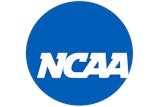I love to shop, no question about that - even now that the starting gun has sounded and people are stampeding for the malls (hopefully not toting their pepper spray). Although I believe in efforts to get people to avoid big chain stores and online retailers and shop at local businesses, I do love using the Internet when something eludes me locally. I'll be the first to admit the problem with shopping locally is the perception (and in many cases, it's warranted) that items purchased in a small store come at a higher price than those you'd find in a big box, or even more likely, than you'd pay online, where cost comparisons are easy. And in this economy, who thinks twice about spending less?
I didn't until this past week, when a press release from U.S. Immigrations and Customs Enforcement (ICE) crossed my desk.
Since June 2010, the U.S. Department of Justice and ICE, working together with the National Intellectual Property Rights Coordination Center and the FBI's Washington field office, have seized the domain names of more than 350 websites accused of selling counterfeit products, including an enormous number of sites where supposedly brand-name sporting goods were being sold. On Cyber Monday alone, the names of 150 sites were announced.
I don't know anyone who jumps up and down with joy at the idea of paying more for an NFL team jersey; in fact, it's probably safe to say a lot of people are willing to look the other way and pay the lower amount, especially when they're using an online retailer. But here's something to think about when you're doing your shopping: it's not just shirts and hats that are being manufactured cheaply and sold by non-license-holders. It's sport shoes. It's golf clubs. It's skis. It's tennis racquets. It's items that we use, and that our customers use, every day. These are the kinds of things they're going to be shopping for, particularly during the next few weeks.
Shoes, racquets, clubs - you name it - are being made cheaply (usually overseas and often in China, where enforcement isn't as much of an issue), painted to look like the real thing, and then sold on online auction sites. In general, it's the more high-end equipment that is being copied and sold illegally; after all, if consumers wants a cheap pair of gym shoes, they'll probably shop close to home rather than ordering online.
The problem here is twofold: a customer is being cheated by buying inferior equipment, and a legitimate retailer is being cheated out of a sale. If the player becomes discouraged as a result of his or her bad purchase, everyone loses.
The Tennis Industry Association has started its own initiative to combat the problem of counterfeit racquet sales. It's asking retailers and consumers to help report names of websites they suspect of selling counterfeit goods, and it's providing updates on what governmental agencies are doing to try to put a stop to it.
I'm not certain whether other sports industries have started their own initiatives, but either way, it's worth it for us to buy from reputable retailers (and in this case, yes, that may mean shopping local brick-and-mortar establishments) and encourage others to do the same this holiday season - and always.
Counterfeiting is unfortunately the dark side of the fitness and recreation industry. We all have a stake in helping to see it doesn't take root here.




































